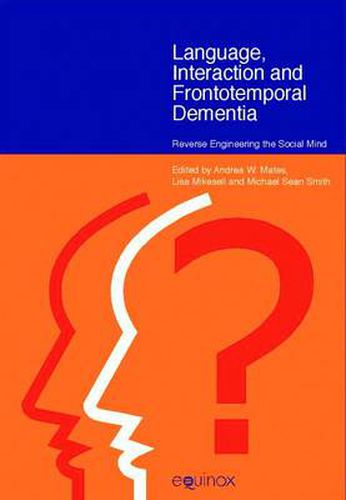Readings Newsletter
Become a Readings Member to make your shopping experience even easier.
Sign in or sign up for free!
You’re not far away from qualifying for FREE standard shipping within Australia
You’ve qualified for FREE standard shipping within Australia
The cart is loading…






In the past before improving technologies allowed for the direct observation of brain activity, brain damaged patients were a prime avenue for understanding language structure and inferring back to brain function. Now with the rapid developments in neuroscience, what we do know about the brain can inform us about language allowing us to build hypotheses about the role particular brain regions perform in language use. Brain damaged patients thus become populations which serve as test cases. In this volume, the researchers focus on the interactions of frontotemporal dementia patients. These patients have right hemisphere, frontal and temporal pole atrophy which leaves their cognitive abilities intact, but their social interactions impaired and their personalities changed. The volume opens with a discussion of the frontal lobes and their expected contributions to language as a tool for social interaction. Then a conversation analytic approach is applied to analyze what changes in the structure of interaction lead to a sense that the interactions are impaired or inappropriate. Finally, the volume ends with a look forward to what FTD contributes to our understanding of human sociality and what has been gained in our understanding of the brain and language.
$9.00 standard shipping within Australia
FREE standard shipping within Australia for orders over $100.00
Express & International shipping calculated at checkout
In the past before improving technologies allowed for the direct observation of brain activity, brain damaged patients were a prime avenue for understanding language structure and inferring back to brain function. Now with the rapid developments in neuroscience, what we do know about the brain can inform us about language allowing us to build hypotheses about the role particular brain regions perform in language use. Brain damaged patients thus become populations which serve as test cases. In this volume, the researchers focus on the interactions of frontotemporal dementia patients. These patients have right hemisphere, frontal and temporal pole atrophy which leaves their cognitive abilities intact, but their social interactions impaired and their personalities changed. The volume opens with a discussion of the frontal lobes and their expected contributions to language as a tool for social interaction. Then a conversation analytic approach is applied to analyze what changes in the structure of interaction lead to a sense that the interactions are impaired or inappropriate. Finally, the volume ends with a look forward to what FTD contributes to our understanding of human sociality and what has been gained in our understanding of the brain and language.